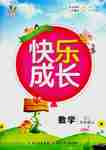题目内容
【题目】Research has become both simpler and more complex. It's simpler because,【1】you have computer, you can find information you need by searching the Internet. For all you information, you don't have to go to【2】library to find the relevant resource and take notes on it. Instead, you can find some sources from the Internet【3】print the copies needed. Remember, however, that you should usually consult different types of sources. That is, you【4】always rely just on the Internet for you research.
While finding information is easier than ever, at the same time, researching has become【5】complex. There is a lot more material available, which means you may be overwhelmed【6】the amount of information. You need to learn【7】to sort through and find the relevant information for your particular project. Also,
【8】need to check the accuracy of it.
【答案】
【1】if
【2】the
【3】and
【4】shouldn’t
【5】more
【6】with
【7】how
【8】you
【解析】试题分析:本文讲述了如何对要做研究的数据、信息经行收集和筛选。
【1】if;作者开头所说的研究变得简单且复杂,然后根据后文的you can find information you need by searching the Internet.可知作者想分别说简单之处和复杂之处分别在哪,作者首先说了简单之处在哪。句意:如果你有电脑,你就你能够通过上网找到你需要的信息。故填if
【2】the;固定词组:Go to the library去图书馆。句意:你所要的信息,都不需要去图书馆找相关资料,做笔记。故填the
【3】and;find resource和print the copies是并列关系,用and连接。句意:相反,你可以从网上找到你想要的资料然后将它们打印下来。故填and
【4】shouldn’t;根据前文作者告诉我们:你应该从不同的方面找不同类型的资料。句意:那就是说,你不应该常常依赖于互联网。故填shouldn’t
【5】more;根据文章的第一段开头:Research has become both simpler and more complex.可知第一段说完研究变得更简单后,此段开始陈述研究的复杂之处,故填more
【6】with;固定词组:be overwhelmed with忙着做…;句意:有很多的材料都很适合你的研究,这就意味着你将忙于筛选各种信息。故填with
【7】how;句意:你需要知道怎样从中筛选出对你研究有用的相关信息。根据句意,故填how
【8】you;根据分析,此句缺少主语,故填you,而不是其他代词,因为上一句的主语是you,且有also作为连接。句意:当然,你也需要去求证它们的准确性。故填you

 优质课堂快乐成长系列答案
优质课堂快乐成长系列答案